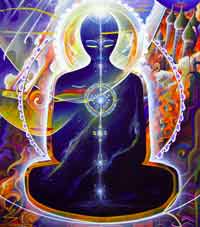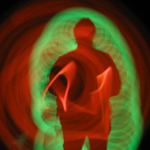Zealots of a non-existent god
 Batting Around the Mouse
Batting Around the MouseI've always liked Scott Adams and Dilbert. He's actually got a pretty good blog, too, and it's a surprisingly combative one. You might expect that his blog is a lovefest if you've never been there: "omg Scot i totully luved dilbertt today! dogbert is my hero!'
Nope, Adams goes for the throat and his (many) commenters do too. It's an intellectual and incendiary blog, and sort of a kindered blog to this one in many respects (I gotta recognize that he's been doin' it longer -- he's the Dogfather).
Speaking of the dyslexic agnostic (he stayed up all night wondering if dog exists) -- Scott has gone after atheists in a big way lately, and caught plenty of reddit-hell for it. Good. He's right: Full-on atheism is just as intellectually indefensible as religion.
This brings me to atheists. In order to be certain that God doesn’t exist, you have to possess a godlike mental capacity – the ability to be 100% certain. A human can’t be 100% certain about anything. Our brains aren’t that reliable. Therefore, to be a true atheist, you have to believe you are the very thing that you argue doesn’t exist: God.I don't particularly like the way he frames his argument as a percentage; it seems too much like gambling on Heaven (but that's what it is, at least according to western religion). This is known as Pascal's Wager:
Chief among the alleged flaws in Pascal’s argument is that you still have to pick the correct religion among many, or else you go to Hell anyway.Sure. But picking any religion that promises salvation slightly improves your odds over picking an option that doesn’t. You're still probably doomed, given your bad religion-picking skills, but a one-in-a-million chance of reducing the risk of eternal Hell is a move worth taking, mathmatically speaking.
I don't subscribe to this theory since I'm an asshole -- an asshole who thinks it's more important to find out the truth than to assure yourself a slot in heaven at the good table. In that respect I have a lot in common with the atheists who are eviscerating Scott all over the internet.
But why should they care?If they were so secure in their position they wouldn't be calling for his head, would they?
Many atheists claimed to be "weak atheists", which is sort of like saying you prefer a shade of whitish-black. Just say "gray", okay? The word "agnostic" already exists; use it.
So, much of the argument is semantics-based bickering. Tiring of this, Scott moved in for the kill -- or so it seems. Like a cat batting around a mouse he's just torturing these people and mocking their cognitive dissonance (ah... a man after my own heart).
The phrase “weak atheist” is apparently nothing but a weasel self-label for agnostics who have picked a side and don’t want to be seen as giving any opening to religion. It is politics disguised as philosophy.As Scott pointed out, we can know a priori that atheism is not logical: If you admit you are not omniscient or omnipotent how can you claim to know whether or not an omnipotent or omniscient being exists? Or put more simply: how can atheism be proven true when you can't prove a negative? Doesn't that make it a faith, a religion?!
Cult of Nothingness
Oh man, nothing gets atheists more pissed off then calling their movement a religion. First they get angry, then they gather in communities like chatrooms and reinforce each others' beliefs, hand out matching T-shirts and start setting up temples dedicated to their faith.
Oops.
They even have their high priests and holy writ. I guess atheism is big business -- if you can get enough people to buy into it.
And that's the problem, isn't it? Aren't most of us fed up with organized religion and all the attendant bullshit? No offense to the believers out there, but much of what is known about early Christianity, for example, reveals its modern branches as spawned from hoaxes, lies and ignorance. The Bible was not written by "God." It was written by men, who say that it was written by God. Big difference, that.
Semantic Saṃsāra
Well, the natural reaction to the bullshit of Christianity is atheism. But wait a minute; how do you know atheism is any better? Well for all the reasons above, you don't. Furthermore, you're following an "-ism" -- a meme, a movement, a faith, an order. And isn't that what got you neck deep in Popeshit in the first place?
So what's the answer?
Well, look at the atheist Scott got all riled up:
Perhaps if he had spent even a small amount of time researching the matter, he'd have learned what the difference between weak atheism and agnosticism is — and at the same time, he might have even learned how and why everything he wrote in his post was either factually incorrect or logically incoherent.He makes a fair point in his link about atheists merely denying belief in a god rather than asserting gods don't exist. Fair enough, but it's a semantics game, buddy! Agnosticism staked out that turf long ago.
His rejoinder:
Agnosticism is not about belief in god but about knowledge — it was coined originally to describe the position of a person who could not claim to know for sure if any gods exist or not.Splitting hairs! None of us can claim to know for certain, except for the specious claims of religious zealots... and a few atheist zealots in the other direction as well. If we accept his argument that:
An agnostic atheist won’t claim to know for sure that nothing warranting the label “god” exists or that such cannot exist, but they also don’t actively believe that such an entity does indeed exist.How is such a belief different from just saying "I'm agnostic"? It's 6 of one, half a dozen of the other. His semantic games probably help to win arguments, but his tactic of dividing people up into lots of different sects sounds a lot like religion to me. It's the natural recourse of a zealot who's experiencing cognitive dissonance.
It's also a way of dissociating yourself from the truly nutball atheists -- the "strong atheists" or whatever he would call'em. Fair enough, those people are stupid. But it seems to me like a lot of atheists are actually agnostics who have taken an atheistic stance until such a time as god is proved one way or another.
Why not just call'em what they are: fence-sitters. Agnostics. Agnosticism, by the way, generally outweighs belief, at least among the logical. Most of us are not ready to believe in a god we don't know. How can you tell it's a good god if you don't know its properties? Saying you don't worship something you don't know seems redundant, but I'll grant that there are probably crazy people out there who worship gigantic invisible hammers or something.
The Stain of Christianity
 To me, saying you're an agnostic is sensible, but taking it one step further and saying you're an agnostic atheist is presumptuous. Given that, to date, humanity has proven the existence of exactly zero gods, doesn't it seem like putting the cart before the horse to say you don't honor any of the thousands of gods that may or may not be out there? If, for example, humans knew of the existence of 1, 2, 10 or 2000 gods, then fine. You can say, "All of these gods suck. I'm an atheist." That would be logical, but dismissing the panoply of possible gods beforehand is a logical leap that rigorous thinkers should not make. Perhaps there's a big-tittied goddess out there who has no worship requirement, but has lots of great advice for lovemaking, thoughtful advice for living happily and the promise of eternal life. Many of the greco-roman gods were totally horny, and pretty tolerant, too. Don't forget those Vedic gods who were into tantric sex rites. Are you gonna pass that shit up?
To me, saying you're an agnostic is sensible, but taking it one step further and saying you're an agnostic atheist is presumptuous. Given that, to date, humanity has proven the existence of exactly zero gods, doesn't it seem like putting the cart before the horse to say you don't honor any of the thousands of gods that may or may not be out there? If, for example, humans knew of the existence of 1, 2, 10 or 2000 gods, then fine. You can say, "All of these gods suck. I'm an atheist." That would be logical, but dismissing the panoply of possible gods beforehand is a logical leap that rigorous thinkers should not make. Perhaps there's a big-tittied goddess out there who has no worship requirement, but has lots of great advice for lovemaking, thoughtful advice for living happily and the promise of eternal life. Many of the greco-roman gods were totally horny, and pretty tolerant, too. Don't forget those Vedic gods who were into tantric sex rites. Are you gonna pass that shit up?Atheists are, ironically, letting the blinders of Judeo-Christian tradition blind them and limit their imagination. I, for instance, don't accept the notion that there can only be one god and he must be male (...somehow), omnipotent and omniscient. One can be extremely powerful without being all-powerful. Atheists are too concerned with the Christian conception of god and are letting those assumptions fuck with their logic. I would encourage so called atheists to explore eastern religions, many of which are more properly called "philosophies", to get a good feel for belief outside of the Judeo-Christian deathgrip. Some suggestions: Buddhism, Hinduism, Taoism and Confucianism.
Subdivisions
There's that "-ism" suffix again. Atheists are as guilty of it as anybody. Isn't that a lot of busywork, subdividing yourself down to a certain sect, all so you can feel some sense of belonging, of having that "god" thing squared away? Done. Full stop. Finished. Problem solved.
But it isn't quite that easy, isn't it? Atheism is making alliances with other groups, such as hardcore fans of evolution and science in general. It's growing and becoming a money-making venture and it's increasingly gaining clout, especially on the internet. Atheism, in its way, affects all of us, and will do so even more in the future. In time it could become a political force and when that happens atheism will become just as corrupt and controlling as Christianity.
Atheists have a stigma -- right or wrong -- of being close-minded, of having decided something. That, to me, is the most dangerous part. Faith, god, reality, truth -- these things are too important to just put in some box. Then again, maybe I'm just a contrarian or a purist because I wouldn't call myself a Christian simply because some fellow 'Christians' would include Hitler and G.W. Bush.
Seeker of Truth
So now that I've criticized everybody else, what do I think? Fair question. I think that what's important is not who or what you believe in, but that you try to find some truth. Life is a quest, and as long as you keep searching for truth or a clue or whatever, you'll be okay. I believe that 'seekers' are safe in the eyes of any benevolent god.
Given a malevolent one, you're fucked either way.
If there's no god, oh well, at least you looked. If you're not going to search how can you really mock the religious folks? Shit, that's every atheists' hobby, isn't it? Their true tenet, their sacrament, I think, is to mock religious dumbshits. And god bless'em for that. I enjoy doing the same. But if you're gonna talk the talk, you should walk the walk.
Ultimately, it about responsibility. If you're labeling yourself with a convenient "-ism" you're not really thinking. Take responsibility for your own faith or lack thereof and try to improve your level of knowledge. Lumping yourself in with a group is too easy. Everybody has different beliefs, so why do we gotta keep making these walls, these sects and strictly delineated sets of believers?
It just makes it easier for people to manipulate us, and isn't that what atheists, agnostics and free-thinkers have tried to escape for centuries?
What I think we need is 6.5 billion people courageous enough to believe in 6.5 billion personal religions without killing each other, or amassing followers. ... Yeah right. A guy can dream.
In the meantime, I guess we'll have to get used to atheism as a legitimate "faith" in this country. There's just one problem: I don't believe atheism really exists! Haha, okay, I'm joking, but the point is that most so-called atheists are actually more agnostic when you come right down to it. But who knows, I could be wrong and as such I'm keeping my options open.
The only thing I know for sure is that people who claim they know "The One True Path™" are full of shit. Fuck them. Find your own path.
Labels: America, Atheism, capitalism, Christianity, death, fundamentalism, rant, religion, science




12 sick little monkeys said:
Very nice, I enjoyed it. I've done plenty of seeking myself.
Everything you said was good and true, and the writing style was easy to read, yet informative. Excellent.
Atheism is the noise reasonable people make in the face of religious nonsense. - (paraphrase of) Sam Harris
Strong and weak atheism are positions that are in regard to a particular deity or set of deities. Hence, I am a strong atheist in regard to an omnimax deity since it is logically contradictory, a weak atheist in regard to the various gods whose existence has not been demonstrated yet who are not logically contradictory, and ignostic (not agnostic, mind you) toward any god whose existence has not yet been posited or whose nature is so nebulous as to be incomprehensible.
Atheism is a negative stance: we are all atheists in regard to the vast majority of deities, and a-mythological creature-ist in regard to said creatures.
The important element to consider is the burden of proof: it is always on those making the positive claim. Hence, atheism is the null hypothesis.
Agnosticism is not a state of belief but a state of knowledge. These words have specific philosophical definitions (which you deride as mere 'semantics games') and colloquial definitions. I prefer the former.
I also do not believe that anyone has called for the beheading of that pointy haired cartoonist. One should not mistake valid albeit vitriolic argumentation for censorship. People tend to get irritated when others arrogantly misrepresent their positions.
Good article, but I think the difference between atheism and agnostic is one of degree. Atheists, even the the "High Priests" such as Dawkins, will never claim to have 100% uncertainty that God does not exist. This includes what form that God may exist in.
It seems to me that agnostics tend to subscribe to the single Creator theory and simply say "we're not sure if this is true or not." An atheist is more of a probability person who will say "is there a chance God exists? Yes. There is also a chance that I can walk through awall because the atoms aligned just right for me to do so."
Basically, an atheist prescribes to a no God theory because it is the most likely of all possibilities.
Are there militant atheists who way over do it? yes. But they are far less common and far more willing to engage in logical debate than their religious counterparts.
I enjoyed the post. Captivating and well-written. However, I think you are mistaken in your assessment of weak Atheists being the equivalent of an Agnostic, with mere semantics being the requisite divider.
The fundamental difference is that an Agnostic gives credibility to a hypothesis, just for it having been posited. A Weak Atheist does not. Those labelled as Weak Atheists agree that the God hypothesis is unprovable and a new hypothesis is needed. But this doesn't translate to a Belief in no-God.
They might hold a Belief that the universe was started by a Quantum Event, or the universe is cyclic and has always existed. But refusing to acknowledge an unproven hypothesis does not constitute a Belief itself.
This is not merely semantics. It is logic. I cannot Believe in a null event. Until evidence of Gods existence can be demonstrated, He is a null event.
I'm not a fan of the term 'Weak Atheist' as it implies a certain lack of conviction in our stance. But it does serve to separate ourselves (Weak Atheism) from those who claim to hold a Belief in no God (Strong Atheism); which seems to be a logical impossibility.
How about Weak Atheists become merely Atheists, and Strong Atheists become Fundy Atheists in the same way that Christians are identified?
Do you believe in flying, invisible, inaudible pink elephants that follow us around, recording our every action?
There's absolutely no way to prove that they do not exist.
So... do we:
a) apply experiential knowledge to the situation and claim that such elephants do not exist, given all that we have seen before in the natural world.
b) say we must be agnostic about the elephants, because they may or may not exist, because we can't prove they don't exist.
Think for a moment: there are an infinite number of non-existent creatures I can pose to you. Are you carrying around an infinite number of agnosticisms? Or do you dismiss all of them, and pay attention to the real things that we can see?
To the people arguing that the weak atheist position is more than semantics: Perhaps, in the context of this discussion, it is. But in the context of the logic you say it belongs within, I say that it is redundant and pointless. Theologically speaking, you can believe whatever you want. Logically, there is a big null event which is prior and primary in comparison with belief/allegiance. My point is that saying you don't believe in the thing that does not empirically exist is redundant, and possibly faulty logic, depending on how you approach it. Since the being in question (whose very "being" status is in question) is so thoroughly unknown, any conclusions about said being are impossible. Phrased as conjecture, fine. Phrased as definitive statements like "God does not exist", they are untenable.
strontium90 said: "Atheism is a negative stance: we are all atheists in regard to the vast majority of deities, and a-mythological creature-ist in regard to said creatures."
It is a negative stance, but you are overreaching with regard to my being an atheist in regard to the vast majority of deities. Since I don't know whether they exist I find it imprudent to assume that I don't believe in them. Perhaps there is a diety, whose existence will be provable in the future, whose characteristics are extremely similar to the physical element of water. In retrospect it would not be wise to deny the existence or favorability of water. I quite like it, and this hypothetical god may have been providing nourishment and life to me for my entire existence. Taking a negative stance and saying I don't believe in such a god/being/elemental is not logical since I am utterly ignorant of what its properties could potentially be. This may be covered by ignosticism, but I think it is a poor term since its very meaning is debated.
Much of it does resolve around semantics since the definition of god is not even close to being agreed upon either (which is why I avoid professing a belief in such a nebulous entity or term). Indeed, humans have invented a term and a panoply of deities whose very properties cannot be determined. Thus, any sort of conclusion regarding anything having to do with a god's properties, including its existence, is logically suspect. In fact, the main failing of atheism as a term in my eyes may be its definitiveness. In such a nebulous debate, actually taking a position is a big disadvantage! (ignosticism, meanwhile, muddies the waters even more)
Another way to put it is this: You're thinking about gods in a negative way. You aren't thinking about them as they could ideally be. I'm saying there might be a god out there for you. Since we don't know that it makes no sense to reject it before it presents itself. I guess my suggestion is: Be open to the possibilities of life and spirituality. Too much negativity is limiting.
As for the "flying, invisible, inaudible pink elephants", I would contend they cannot exist simply because they can't be both pink and invisible. Pink is inherently visible so there's a contradiction there. If we remove the pink part, in all probability, they don't exist. But the universe is much bigger than any of us can comprehend and so it is possible that such a being could exist. Whether they monitor us, though, would tend to narrow things down. However, I am not prepared to state emphatically that said beings do not exist.
>>>My point is that saying you don't believe in the thing that does not empirically exist is redundant, and possibly faulty logic, depending on how you approach it.
I do not follow. I can also utilize empiricism to lend support to a naturalistic position (if one accepts empiricism as a viable method for learning about nature): throughout history, various god-hypotheses have made a great deal of falsifiable predictions, such as diseases being caused by evil spirits, prayer actually working, and thunderstorms being due to god's wrath. However, naturalistic explanations have demonstrated to be far superior in terms of explanatory/predictive power. Hence, the god-hypotheses are not sypported by empirical evidence. This does not directly address the question of the existence of gods, but it certainly suggests that god-hypotheses have been incredibly unreliable - useless, even.
>>>Since the being in question (whose very "being" status is in question) is so thoroughly unknown, any conclusions about said being are impossible.
Hence, ignosticism. If a concept is meaningless or incoherent, why bother even considering it? I am atheistic in regard to entities with (relatively) clearly proposed characteristics, whose existence I find highly unlikely.
>>>Phrased as conjecture, fine. Phrased as definitive statements like "God does not exist", they are untenable.
Since all beliefs ought to be held tentatively, there is nothing wrong with holding the belief that "(given what I know about the world,) God does not exist."
If I told you that males had, on average, IQ scores that were 3 standard deviations above female scores, without any evidence, would you withhold belief until I presented evidence? Would your belief be "(given what I know about the world), men are not 3 standard deviations more intelligent than women?" Atheism is a perfectly defensible position. I am certain beyond a reasonable doubt that god(s) do(es) not exist, but that does not imply absolute certainty.
>>>Perhaps there is a diety, whose existence will be provable in the future, whose characteristics are extremely similar to the physical element of water. In retrospect it would not be wise to deny the existence or favorability of water. I quite like it, and this hypothetical god may have been providing nourishment and life to me for my entire existence. Taking a negative stance and saying I don't believe in such a god/being/elemental is not logical since I am utterly ignorant of what its properties could potentially be.
Water is not an element, it is a compound. Strontium is an element. Regardless, this seems like a trivial re-definition. Certainly, if you define god to mean "a pear that is sweet," then gods inhabit the earth in copious numbers. Regardless, this, unlike the differences between atheism and agnosticism, is semantics. If you call water god, wonderful: god exists. However, I would deny your premise, that the definition of god is water, since calling it water is unambiguous and parsimonious, whereas calling it god seems rather superfluous and pointless.
"it's more important to find out the truth than to assure yourself a slot in heaven at the good table."
Well said.
I'm gonna add you to my blog just for that comment alone. May take a couple days I'm lazy.
"Many atheists claimed to be "weak atheists", which is sort of like saying you prefer a shade of whitish-black. Just say "gray", okay? The word "agnostic" already exists; use it."
Ya when I debat atheism being a religion with atheists they always tell me well were just skeptics. Ya well I'm skeptical of atheism being skepticism.
Awesome I loved the whole thing.
I think the original poster makes the mistake of most theists, which is to ascribe a dogmatic belief to atheism. Atheism simply posits that there is no compelling evidence of any deity, and thus no rational reason to believe one exists. Should compelling evidence emerge, atheists are quite capable of modifying this view.
Agnostics, in my opinion, are simply atheists who haven't "come out". Modern agnosticism is atheism made deferential to theism.
I agree that Atheism is a religion because it behaves like one, as does Secularism which appears to be another word for Atheism. Like all religions, they seek to supercede those that came before them and replace them. Like all new religions they make an appeal to reason while asserting that all past religions were mere superstition and conjecture. They produce zealots and militants just like every religion.
Very few people I meet are truly Atheists because of sincere conviction and those few are generally the ones I can have an excellently challenging converstion with even though I'm not an Atheist. The rest are making a negative choice; I hate all existing Theisms therefore I become an Atheist. This shows forth in the fact that one cannot have a conversation with them any more than with a fundamentalist of any other religion. They are dogmatic, intolerant and do not share their convictions with you through reason and logic but attempt to bash you over the head with insults instead. Their dogma holds that anyone who does not agree with them must, by necessity, be stupid, foolish, illogical and superstitious. For them, Theistic religions are simply the new paganisms to be dismissed and eventually persecuted and wiped out as the old were.
Many Atheists forget how many foolish assertions science and reason have made, even quite recently (Prenology, anyone?) and that reason is only as good as the human doing the reasoning. They likewise forget that most of the arguments they put forth about religion have already been made from within. Every Prophet railed about something similar. Ecclesiastes was almost not included in the Bible because of it's atheistic polemic against foolishness and corruption, "Futility of futilities. All is futility." Every new religion has made the same arguments before it itself became a corrupt status quo.
As the Preacher said, "There is nothing new under the sun" and Atheism is nothing new.
Post a Comment
Home